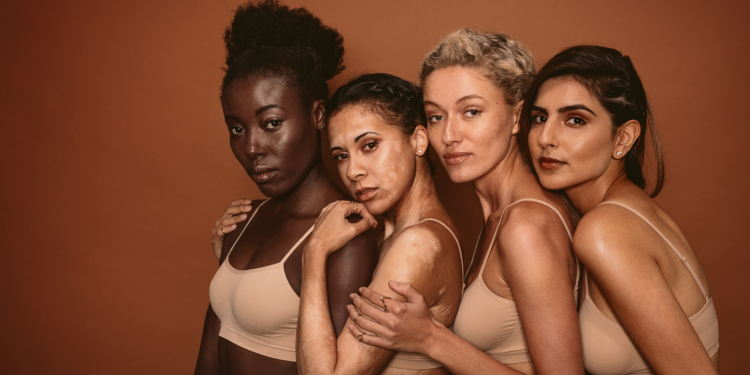The first time I had an out-of-body experience, I was a teenager who had just been knocked out from after-school theatrics after falling face flat to the patchy concrete floor of our SS1 classroom. I watched my classmates from across the field carry my half-conscious body to the dispensary to do what they do best in those situations — call my parents. Exams were around the corner, and that’s all I could think of even as I lay there wondering why a fall was such a big deal, and why my mother was distressed, insisting I should come home. Eventually, I was given a mirror to fully understand why. In the few hours it had taken to get me to the clinic, and for my mother to arrive, my face had become unrecognisable. Later on in life, I’d sometimes remember that moment I was carried across the field and doubt if it ever happened.
When Cardi B lit up the stage with her presence and those of her dancers at the Livespot X Festival in Lagos in December last year, all I could think of at first, as she performed in the national colours of my country was how portable her body was. The diamond-like-encrusted flap running across her stomach stayed in place no matter what she did and her tattoo, the large multi-coloured peacock print covering her thigh, hip, and back, added to the style of the feathered outfit that sashayed as she swung here and there. Her skin sticks, I remember thinking to myself as I sang along to one of her more popular songs. It was the first time the concept of skin sticking to oneself would make itself so clear and offer a meaning that finally encapsulated the varied experiences relating to the female form in the public sphere.
When the video of a person who scraped off brown to reveal the whites underneath the skin went public, most of us were appalled. We wondered why would anyone do that to themselves. Did they not consider the repercussions of bleaching? But it doesn’t matter. I’ve come to believe that skin, especially women’s skin, is in a state of flux for most of her life, that is, it is susceptible to constant change until she gets the courage to slap and lock it in, refusing it to go anywhere but around her. In many occasions, a woman loses her skin against her own will and agency. Take, for instance, the market place where traces of the skin are left on the hands of traders who argue their right to touch and to hold bodies that don’t belong to them. Skin becomes part of the objects put on display for sale, and you quickly learn to cover up as much skin as you can afford for it not to be taken away without your knowledge. Other times, it is more intentional: the seeking hand down your thigh, the blatant grabbing of breasts, the taking advantage of a person.
Throughout the concert, I didn’t remember that Cardi B had a child until she appeared in Vogue the next day with said child gracing the cover pages of the magazine. Why? Because she was at the strip club the night before bouncing her head off some strippers naked booty? Because she talks loudly? Because she gives away too much and doesn’t fit the idea of a wife and a mother? A lot of us tend to harbour this logic that a woman is a limited reservoir of skin and words, which have to be given to the right person, at the right location, at the right time. Very few of us catch ourselves before we perpetuate it onto unsuspecting girls and women.
Interestingly, the women who give and continue to give, continue to prove that a woman is not a limited resource. Skin replenishes and sometimes is exfoliated on purpose to remove the dead skin cells which no longer serves us, but women, the humans, still remain. It is ironic then, the trick to making skin stick is to give more of it. To reserve it means that one day, it will run out. It will lose its freshness, become old and undesirable.
This might be an unpopular opinion, but think about it: Giving more skin, revelling in the fact that you always have more to give means that you always have more, and no matter how old you get, how many scars you accumulate, how much the journey of life makes its imprint on it, you will never run out. So, like our people say: “Give them, how else will they take it.”


